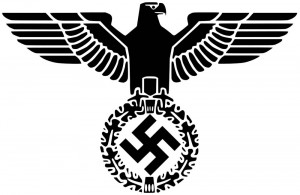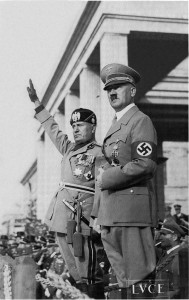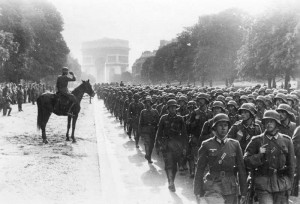 World War II was a global conflict driven by adversarial political ideologies: fascism, National Socialism, and democracy. WWII began with Adolph Hitler’s invasion of Poland. He was a leader of the Third Reich, an authoritarian government which was imperialist and authoritarian and treated its adversaries very harshly, particularly, Germany’s Jewish communities.
World War II was a global conflict driven by adversarial political ideologies: fascism, National Socialism, and democracy. WWII began with Adolph Hitler’s invasion of Poland. He was a leader of the Third Reich, an authoritarian government which was imperialist and authoritarian and treated its adversaries very harshly, particularly, Germany’s Jewish communities.
The Rise of Adolf Hitler
Hitler’s speeches attracted large crowds. This is where he channeled the rising energy and loyalty of the German people. Early on, Hitler persuaded his mother to allow him to drop out of secondary school. He pursued his love for art, applied to an art school, but was rejected. He subsequently enlisted in the German army Hitler never achieved a rank higher than corporal.
Germany’s defeat in World War I was devastating to the German people. In particular, the German economy became crippled. Hitler often felt isolated and sad; he was an introvert. His fellow soldiers regarded him “strange” and “odd” in response to his manic fits and bouts of depression.
The National Socialist German Workers’ Party
 The Nazi Party, better known as the German Workers’ Party, emerged in the 1920s. Hitler immediately joined. As Hitler learned more about the party, it became clear to him that National Socialism was largely anti-Semitic and highly nationalistic. Hitler eventually joined forces covertly with the GWP.
The Nazi Party, better known as the German Workers’ Party, emerged in the 1920s. Hitler immediately joined. As Hitler learned more about the party, it became clear to him that National Socialism was largely anti-Semitic and highly nationalistic. Hitler eventually joined forces covertly with the GWP.
Having grown up in a privileged, bohemian culture, by his teenage years he began taking interest in the political tenets of the GWP. He worked tirelessly to promote the party, even though various Germans expressed reservations about Germany adopting a political system which could further alienate communists such as the ruler of the Soviet Union, Joseph Stalin. Moreover, leaders wanted more attention placed on social healing, healing as a nation, and careful investment in the country’s infrastructure. They felt that hyper-militarism could bring Germany to the same predicament as they were following the first World War.
The entire nation struggled to recover from the aftermath of World War I because inflation and unemployment were too high. A faction of the German leadership did not want to pursue the same goals as Germany did in WWI. Opposition to the National Socialists, by these dissenters, ultimately waned as Hitler gained more power within the Party. Hitler changed the name, German Workers’ Party, to the National Socialist German Workers’ Party, or “Nazis.”
Germany Embraces Hitler’s Party
 No so dissimilar to the Communists, Hitler and the Nazis only endorsed equality for the German people-those who were considered racially pure. Hitler targeted Jews, Gypsies, Communists, non-whites and disabled persons, all whose characteristics did not share that of the “ideal” German. Many of them became part of German’s broader program of “Eugenics, a program which sterilized may people. The Germans wanted to weed out those who supposedly “infected” the German people. The handicapped were the people sterilized most often.
No so dissimilar to the Communists, Hitler and the Nazis only endorsed equality for the German people-those who were considered racially pure. Hitler targeted Jews, Gypsies, Communists, non-whites and disabled persons, all whose characteristics did not share that of the “ideal” German. Many of them became part of German’s broader program of “Eugenics, a program which sterilized may people. The Germans wanted to weed out those who supposedly “infected” the German people. The handicapped were the people sterilized most often.
Hitler wanted to create a perfect race of people who would be direct descendants of the Nordic peoples who had originally settled Germany. German leadership now recognized themselves as “Aryans” or “the Aryan Nation”. The ideal German man would be blond, blue-eyed, have perfect physique and a strong body.
The Nazi Party and Eugenics
As World War II continued, the Nazis seized the opportunity to capture, torture and ultimately kill millions of their own people, particularly targeting the Jewish communities who had been placed in ghettos; Jews did not have rights. Over time, the Germans built concentration camps where a majority of inmate populations were Jews. Moreover, German scientists and doctors performed terrifying genetic experiments on them.
As the Hitler and the Nazis forged an autonomous totalitarian regime, some of the people came to understand that the government was concerned little with the people as they did rebuilding their empire and recapturing the surrounding territories which had been taken from them in WWI. As the Nazis gained control over industry and manufacturing, German workers found themselves working much harder to fuel Hitler’s war regime and were paid significantly less.
The Germans sought to control all levels of society, including work, schools, and even home/family life. They used a pervasive propaganda campaign to entice Germans into new attitudes about the state and every-day living. The propaganda permeated every aspect of German life. The Nazi Government assumed control of various institutions which formally were subject to higher levels of government.
 As World War II progressed, Hitler maintained his quest for European domination. The Nazis infiltrated and took control of Poland, and then soon afterwards they pushed forward into Belgium and France. Hitler wanted to take back the Rhineland, which was symbolic because this was the region which was taken from the Germans at the end of the first war. Ultimately, Allied forces pushed Hitler’s army back and eventually forced the Germans to surrender.
As World War II progressed, Hitler maintained his quest for European domination. The Nazis infiltrated and took control of Poland, and then soon afterwards they pushed forward into Belgium and France. Hitler wanted to take back the Rhineland, which was symbolic because this was the region which was taken from the Germans at the end of the first war. Ultimately, Allied forces pushed Hitler’s army back and eventually forced the Germans to surrender.
As defeat became inevitable, Hitler and his wife, Eva Braun, retreated to a bunker in Berlin where they both committed suicide-Hitler by a single gunshot to the head and Eva Braun, a cyanide capsule. They were later cremated in accordance with their written requests and then were placed in adjacent graves.
Post Nazi Germany
The German people have had a difficult time dealing with the horrors and atrocities which they too were responsible for. There is little excuse for apathy. The genocide against the Jews may stigmatize the German people for a long time. There are still individuals that suggest that the Holocaust did not happen. These people are called Holocaust deniers .
Because of myriad writings, photographs, and eyewitness accounts, there is no question that the Holocaust did indeed happen. Many men who held prominent positions within the German bureaucracy were subsequently tried by the United States government. Many were tracked down, arrested, and forced to stand trial for their crimes against humanity. Studying Nazi Germany, Adolf Hitler, and the Holocaust is very important. Many people argue that the study of the history of the Holocaust is crucial so it never happens again.